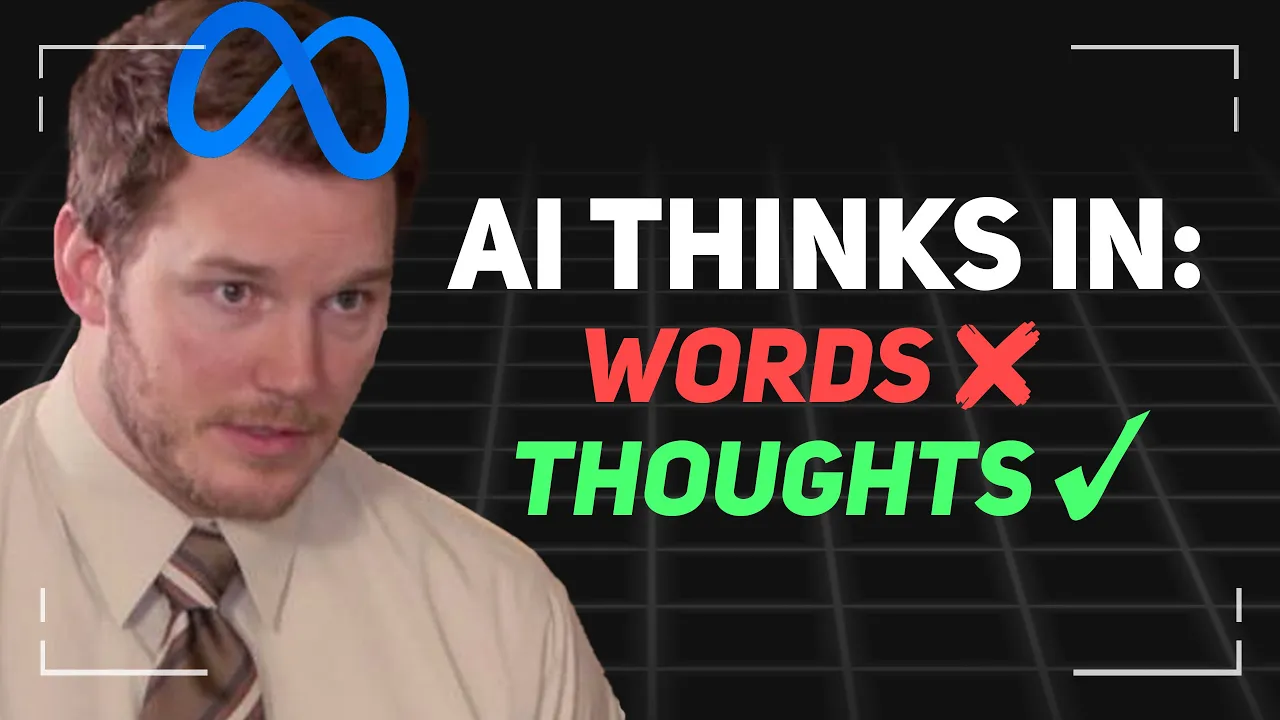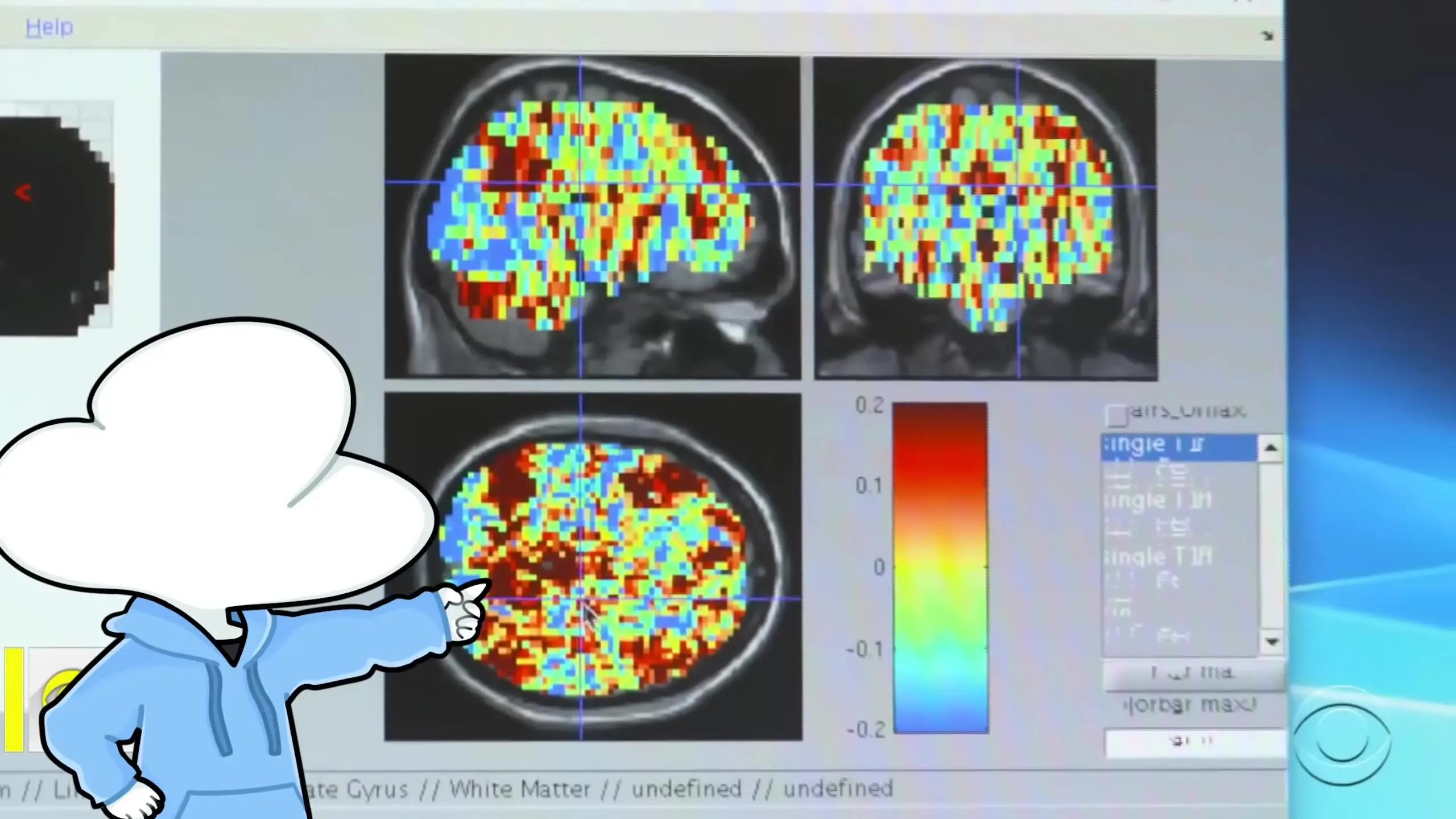
The AI landscape is witnessing a significant evolution in reasoning capabilities. With models like OpenAI's O3 and Deep Seek R1 gaining attention for their reasoning abilities, a new frontier is emerging that might fundamentally change how AI systems process complex problems. At the heart of this revolution is Meta's research into reasoning methods that transcend traditional language-based approaches.
The Limitations of Language-Based Reasoning
Current AI reasoning approaches predominantly rely on chain-of-thought (CoT) methodologies, where models break down complex problems into intermediate steps expressed through language. While effective to a degree, this approach faces fundamental limitations.
- Language may not be optimized for reasoning processes
- Human reasoning often doesn't rely heavily on language
- Language models expend significant resources on words that primarily serve human comprehension rather than efficient problem-solving
- Token-based reasoning creates information bottlenecks through lossy compression

Research indicates that when humans solve complex problems, the language parts of our brains aren't necessarily the most active. Consider solving a maze - this spatial reasoning task doesn't require verbal processing. Language is optimized for communication, not necessarily for internal problem-solving processes.
Meta's Coconut: Reasoning in Latent Space
Meta's research project Coconut represents a paradigm shift in AI reasoning. Instead of forcing models to reason through language tokens, Coconut introduces a latent space where the model can represent thoughts numerically in a high-dimensional space.
- Replaces token-based "thinking" with numerical representations in latent space
- Enables "continuous thought" that preserves information integrity
- Allows for more efficient optimization through continuous values
- Creates reasoning capabilities that may be difficult to express in words
Think of tokens as lossy compression - each token a model generates represents a compressed snapshot of its internal state, inevitably losing details in the process. The next prediction cycle requires decompressing this information, but the nuanced details are already gone. Latent space reasoning functions more like lossless compression, preserving the AI's brain state with greater fidelity.
When researchers decoded Coconut's continuous thoughts back into language, they discovered these thoughts represented the intermediate steps for solving problems - despite the model not being explicitly trained to produce such steps. This emergent behavior suggests the latent space naturally facilitates reasoning processes.
Parallel Reasoning Paths in Latent Space
One of the most fascinating discoveries in Meta's research is that models operating in latent space appear to explore multiple reasoning paths simultaneously. The model implicitly evaluates the potential of different reasoning branches to lead to correct answers, similar to a breadth-first search algorithm.
This parallel exploration may not emerge in token-based systems because tokens simplify too much information. The complex dynamics of multiple reasoning paths require the richer expressiveness that latent space provides.
In benchmark tests, Coconut demonstrated clear advantages over standard chain-of-thought methods, particularly on tasks requiring complex planning, while generating fewer tokens during inference - suggesting greater efficiency.

Beyond Latent Space: Recurrent Depth Approach
Taking the concept even further, recent research proposes a recurrent depth approach called "Huggin" that fundamentally reimagines test-time compute. Instead of generating more tokens to represent reasoning steps, this method iterates a recurrent block in latent space before generating the next token.
This approach resembles intense internal processing - like a long pause before formulating an idea - rather than verbalized step-by-step reasoning. The model can provide more concise output with deeper reasoning without generating excessive intermediate text.
- Redirects processing power from token generation to internal reasoning
- May be more resource-efficient for users with limited computational resources
- Potentially reduces hallucinations by enabling more careful consideration before predictions
- Can capture reasoning types that resist verbalization (spatial reasoning, intuitive judgment)
Heat map visualizations of the recurrent block's latent space reveal fascinating patterns. When processing input text, some tokens show darker colors very early in the recurrence process, suggesting the model understands these words relatively easily. Other tokens maintain lighter colors even after multiple recurrences, indicating the model spends significantly more iterations processing these semantically important words.
For example, when processing a potentially harmful query about making explosives, the model dedicates more computational resources to keywords that define the dangerous context, showing oscillating patterns that suggest exploration of different interpretations before reaching a conclusion.
Training Implications and Efficiency
Perhaps most surprisingly, unlike Coconut which requires specialized chain-of-thought training data before converting to latent space reasoning, the recurrent block approach can be trained on standard text data. The key training innovation involves iterating the recurrent block a random number of times during training, forcing the model to function effectively with varying recurrence depths.
This method achieves reasoning capabilities without reinforcement learning or specialized fine-tuning - a potentially more accessible approach to building reasoning systems.

Future Implications for AI Development
While current research has scaled these approaches to around 3.5 billion parameters, questions remain about how they might perform at larger scales of 70B or 200B parameters. These novel approaches to test-time compute might follow different scaling laws than traditional methods.
The evolution from token-based reasoning to latent space reasoning and now to recurrent depth approaches represents a fundamental rethinking of how AI systems can process complex problems. By moving beyond the constraints of language, these models may develop reasoning capabilities that more closely resemble human cognition - not through verbalized step-by-step processes, but through rich internal representations that capture the essence of problem-solving.
Conclusion: A New Era of AI Reasoning
Meta's research into latent reasoning and recurrent depth approaches signals a potential paradigm shift in how we conceptualize AI reasoning. By freeing models from the constraints of token-based thinking, these approaches may enable more efficient, more powerful, and more human-like problem-solving capabilities.
As these technologies mature, we may see AI systems that can tackle increasingly complex reasoning tasks while generating more concise, accurate outputs - bringing us closer to artificial general intelligence that can reason effectively across domains without being limited by the structures of human language.
Let's Watch!
Meta's Revolutionary Reasoning AI: Beyond Words & Tokens
Ready to enhance your neural network?
Access our quantum knowledge cores and upgrade your programming abilities.
Initialize Training Sequence